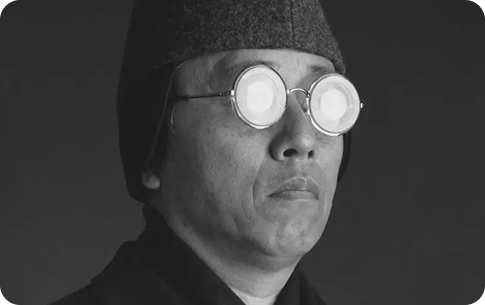 Pari Nirmal
Pari Nirmal“I love what I do now because it allows me to transform challenges into change. Problems into solutions.”
- Priyaswara Bharti
Priyaswara Bharti is a 23-year-old documentary filmmaker, development communication professional, campaigner and youth advocate from India using storytelling to raise awareness and share perspectives on community issues.. As founder of youth forum Bihar Youth for Child Rights and co-founder of Vithi Foundation she has impacted over 20,000 young people through advocacy programs and skill-building. An Ashoka Young Changemaker 2021 and UNICEF GenU Young People’s Action Team member 2024-2025, her award-winning films spotlight gender, education, and climate issues.
“Art found me when I needed it the most,” she explains. “After dropping out of school, I began investing my time in filmmaking, dancing, and writing. What started as an escape soon became my passion and eventually, my purpose and career. I love what I do now because it allows me to transform challenges into change and problems into solutions,” she adds. “Most importantly, I am independent in every respect, earning my own money to make my own decisions.”
For Bharti, films are her way and medium of presenting challenges, showing action, and encouraging dialogue on crucial community issues , while highlighting solutions and the roles individuals can play.
“I became a creative activist so that children and young people have the freedom to explore themselves, discover their talents, and use them for change, just as I found mine through storytelling and film making."
As a child, she witnessed poverty-induced injustices such as child marriages among her friends, children as young as 12 or 14 working to support their families, and young girls being forced to leave school for household work. “These experiences were treated as normal and right,” she explains. “Everything in my films are lived experiences and issues I have seen and faced around me.”
Her life took a different path when her family moved to Patna (a town in Bihar, India) from a small village in Gopalganj district of Bihar for her father’s medical treatment after a serious accident. “Those three years changed everything. My parents decided to stay in Patna so that I and my siblings could have a better future. In between we had a financial struggle so I dropped out of private school and shifted to government school after class 6.”
“I grew up in an environment where I could attend school, express myself, and connect with others freely; opportunities that many children around me didn’t have. It was this contrast between what I had and what many of my peers were denied that made me realize the power of voice and expression. Over time, my creativity became my way to speak out. I started using storytelling and filmmaking to uncover hidden issues, amplify young people’s voices, and challenge harmful norms. Art, for me, became a form of activism because it reaches hearts where facts alone cannot. It allows people to see, feel, and question.”
Civic space in India is considered repressed which Bharti says “comes with many challenges and constant changes, and at times, it can feel demotivating. But I have always believed in staying true to my purpose and continuing the work I do. I choose to collaborate with whoever is in government not out of support for any party, but to ensure that those in power are held accountable and are doing their part for the people. For me, change begins with small, consistent actions. It is these small steps that, when taken together, create meaningful, lasting change.”
She further shares:“I also firmly believe that everyone should have the right to express their views freely, without fear or intimidation. A truly equal society is one where people can speak up, be heard, and shape the present they want to live in.”
For the Emerging Creatives Programme, Bharti has shared the trailer for her upcoming documentary called ‘The Unknown City: My Own City Flooded’. It tells the story of the waterlogging crisis that hits urban cities in India every monsoon, focusing on the 2019 floods in Patna, Bihar. Sadly, this isn’t just Patna’s story; cities like Bangalore, Chennai, and Mumbai face the same reality year after year because of poor drainage and planning.
“For me, this film is very personal. In 2019, I was stuck in my home in Lohanipur, Patna, for 10 long days with no electricity, no food, and no access to basic resources. My two siblings and I watched as food was airdropped by helicopters and boats became the only way to move around a shocking scene for a city that’s considered ‘developing.’ “At that moment, we decided to capture and document what we were living through.”
WATCH THE TRAILER

Global Citizen’s Emerging Creatives Program provides a platform for emerging creatives in the Global South that are highlighting the need for open civic space worldwide. Through their art, they call for change, shine a light on social injustices, and advocate for the advancement of the Global Goals.
MEET THE MENTOR
Rakaya Esime Fetuga
POET
South African-born Simphiwe Molefe, uses his photography to show the impacts of energy issues in the country. His collection of images titled, Impilo Iyaqhubeka, translates to mean “life goes on” in isiZulu and looks at how every day members of his community cope with South Africa’s ongoing power crisis.
In 2023, South Africa’s civic space rating was downgraded from “narrowed,” to “obstructed” — the third worst rating a country can have. That’s why Molefe believes creatives like himself have a role to play in highlighting the effects of the failure of basic services such as the power crisis in South Africa.

